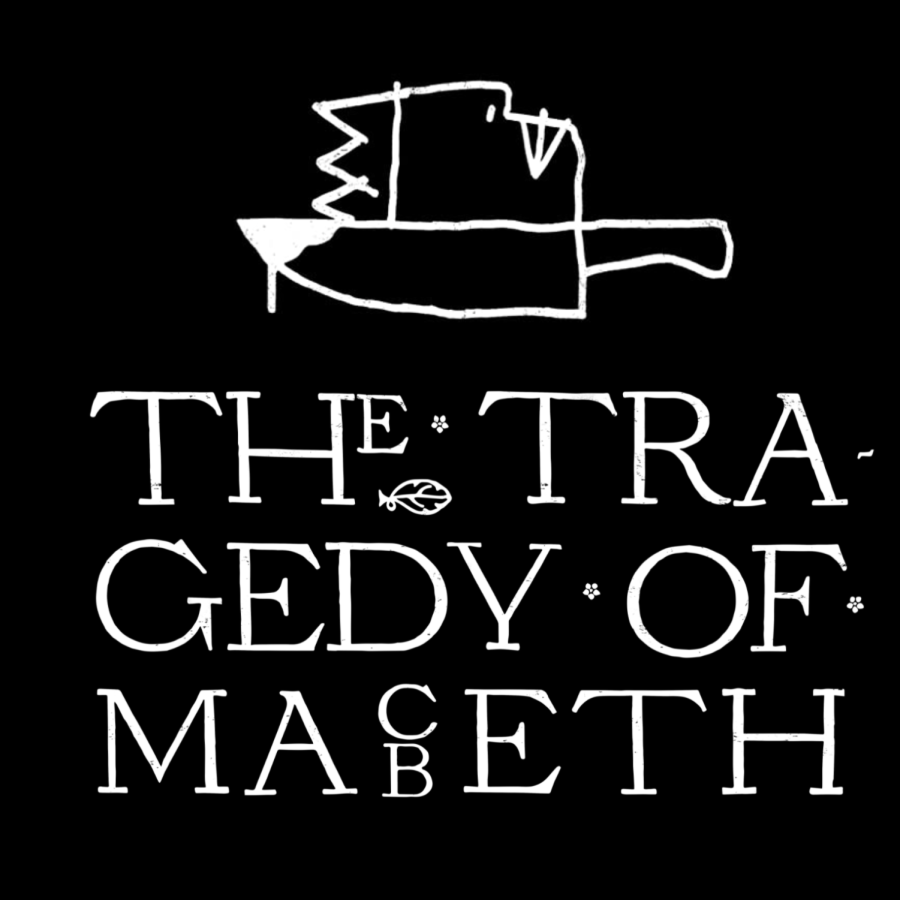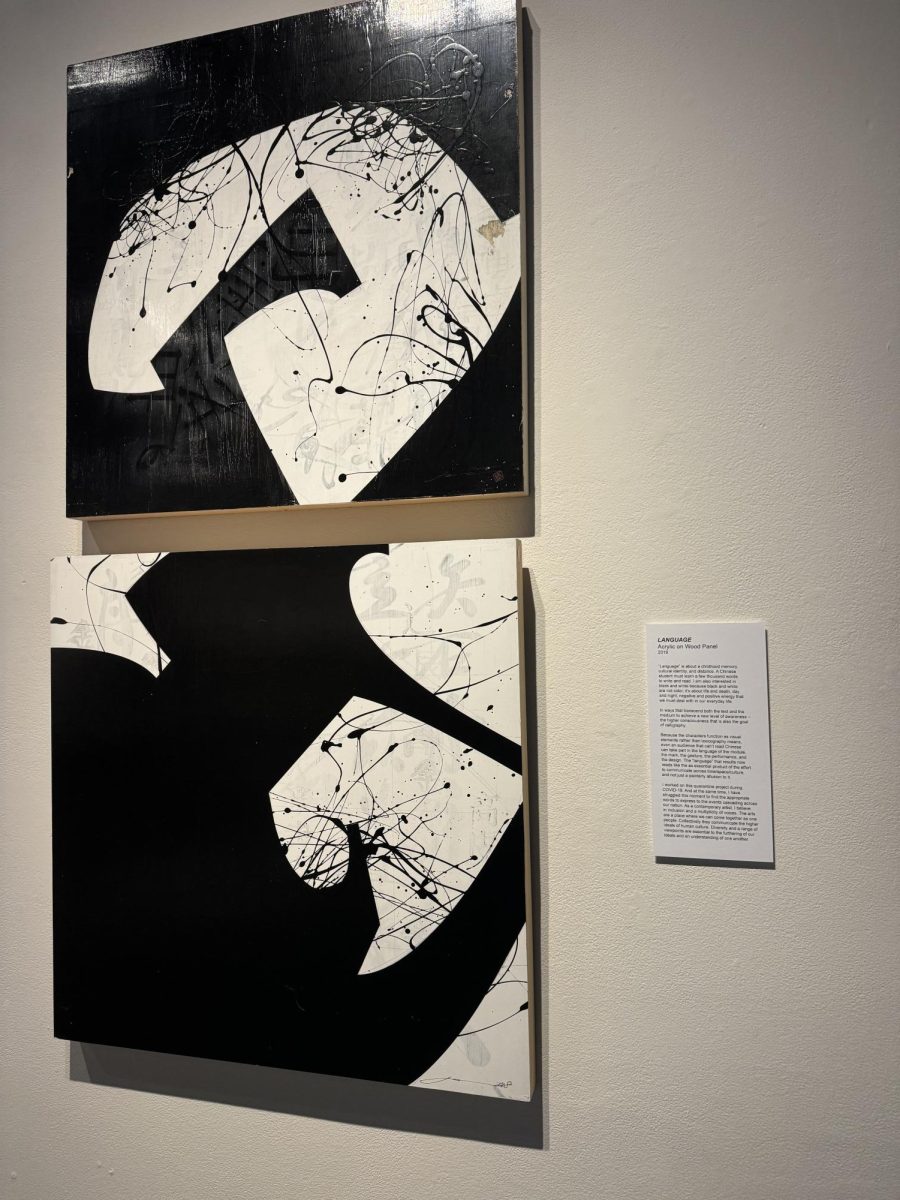“The Tragedy of Macbeth”: Revisiting Shakespeare in Black and White
The image depicts a black movie poster with white lettering. Written at the bottom is ‘The Tragedy of Macbeth’ and at the top is a small linework image of a rudimentary face and knife design. Photo courtesy of IGN.
February 21, 2023
“The Tragedy of Macbeth” (2021) is one of the latest adaptations of William Shakespeare’s play “Macbeth.” Starring Denzel Washington as Lord Macbeth, a Scottish ruler who rises in a bloody ascent to kinghood and inevitably falls from grace, the film has a 7.1 on IMDb and 93% on Rotten Tomatoes. Originally released in theaters on Dec. 25, 2021, “The Tragedy of Macbeth” is currently available for streaming on Apple TV+.
While “The Tragedy of Macbeth” is based on Shakespeare’s play, prior knowledge of “Macbeth” isn’t required before heading into the film. However, Shakespearian fans will be delighted to hear that the adaptation is true in spirit to the 1623 play. The film does take a couple of head-scratching liberties, but most are in response to the nature of a modern production and don’t detract from the narrative as a whole.
“The Tragedy of Macbeth” contains stunning cinematography that banks on the purposeful choice to film in black and white. In a New York Times Article, the writer and producer of “The Tragedy of Macbeth,” Joel Coen, explained his approach to Macbeth as a “theatrical presentation…I was trying to strip things away and reduce things to a theatrical essence, but still have it be cinema.”
As a result, “The Tragedy of Macbeth” walks a unique line between play and movie. Viewers are meant to be thrown by the angular, minimalistic environments. The film’s design choices create an ambiguous atmosphere of cold, stark beauty reminiscent of stage backdrops. By deconstructing the narrative via cinematography, the film successfully adds a visual level to one of the questions running throughout the tragedy: how much of life is prewritten for us to act out?
Denzel Washington gives a powerful performance as Lord Macbeth, adding a memorable rendition of Macbeth’s infamous “Tomorrow, and tomorrow, and tomorrow…” soliloquy to the ranks. Kathryn Hunter brings the Witches to life, successfully meddling in Macbeth’s life with playful equivocation. Frances McDormand plays bloodthirsty Lady Macbeth, bringing one of Shakepeare’s most ambitious women to screen with ferocious accuracy. Other notable performances include Corey Hawkins as MacDuff and Alex Hassell as Ross.
The cinematography and performances were excellent, but “The Tragedy of Macbeth” truly shines because of its upfront approach to the brutality within the story. At no point does the film shy away from depicting the consequences of Macbeth’s spiraling lust for power, but it never comes off as excessive. Instead, viewers are pulled along by scenes that pass by simultaneously dream-like and unforgivingly real, hooked until the very end.
Even with prior knowledge of the way the story unfolds, “The Tragedy of Macbeth” somehow felt brand new despite not contributing anything necessarily groundbreaking in the way of Shakespearian movie adaptations. Out of 10, it’s a solid 9. It’s not a movie for everyone, but highly recommended for Shakespeare fans and those seeking something slightly off the beaten path.









